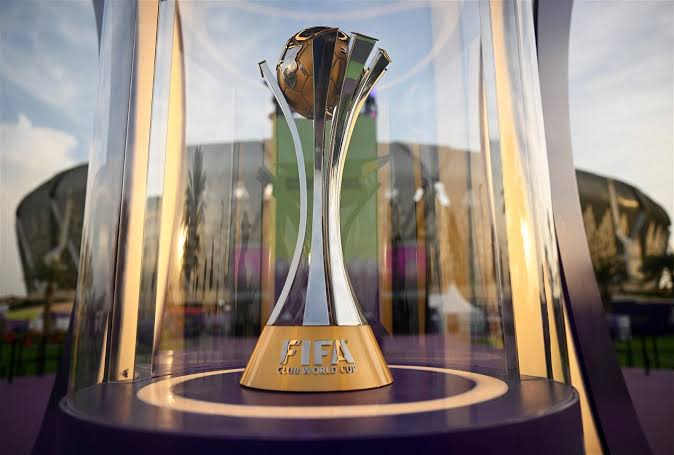Arsene Wenger emphasizes that the expanded Club World Cup by FIFA has the potential to truly globalize football, urging observers to view it beyond a European-centric lens.

Scheduled to commence in 2025, the 32-team tournament will feature prominent European clubs, including the likes of Manchester City and Chelsea, adding a heightened level of competition to the global football landscape.
World players’ union Fifpro and City boss Pep Guardiola have expressed concern at the plans.
However, Wenger, Fifa’s chief of global football development, says it is “a chance for other clubs to progress”.
Having championed the idea of a biennial World Cup, only for it to be dropped amid fierce opposition, the Frenchman wants to find ways of making all the confederations as strong as Europe’s Uefa.
“The positive impact this will have on clubs is going to be huge, because it will increase resources for clubs all over the world to develop and to compete,” said the former Arsenal manager.
“In Europe we are lucky, but it’s important that we make football really global and this creates a chance for other clubs to progress. It will give more opportunities to more players all over the world to compete at the highest level.
“I accept that the football calendar is a busy one, but this is a competition that is going to take place every four years and of course the rest period during the competition and afterwards has to be respected.”
The final of the event in the United States in 2025 will take place on 13 July. Under normal circumstances that would be four weeks before the start of the 2025-26 Premier League season.
At the height of the Covid-19 pandemic in 2020, European club competitions were completed after the end of all domestic football, with the quarter-finals onwards staged in this August period.
As a result, the Premier League gave Manchester City and Manchester United the opening week of the 2020-21 season off to allow their players extra rest time.
Wenger believes a solution can be found this time and pointed to the improved treatment of players as evidence their workload is being managed far better.
“The welfare of the players in the last 20 years has increased dramatically when you look at injury prevention, recovery work, nutrition and advances in medical technology,” he added.
“Also VAR has helped with the protection of players, as players know they cannot escape from making bad tackles that cause injury.
“We see players receiving world awards, the likes of Messi, Ronaldo, Benzema, all over the age of 35. And it is not unusual to see international careers lasting over 20 years.
“Not so long ago, that was not possible.”
Lack of Recovery Time Poses Challenges for Players
Manchester City’s Concerns:
Manager Pep Guardiola voices apprehensions over the scheduling of tournaments during the summer, expressing worry about the limited recovery time players have between seasons. While he supports new competitions, Guardiola emphasizes the need for adequate recovery periods, especially given the demanding schedule.
Guardiola notes, “It is really tough to finish the season and then, in three weeks, restart again and go to Asia or the States. That is really, really tough, for ourselves and especially for the players.”
Players’ Perspective:
Manchester City midfielder Bernardo Silva shares Guardiola’s concern, labeling the current volume of games as “crazy” and highlighting the heightened risk of injuries. Despite acknowledging their substantial earnings, Silva raises the issue of maintaining the energy and intensity of the game with an extensive fixture list.
Silva comments, “If we have this many games for so long, at the end, the games will lose the energy and the intensity.”
Fifpro’s Stance:
Fifpro criticizes the new competition format, asserting it “demonstrates a lack of consideration for the mental and physical health of participating players.” The player advocacy group urges FIFA to engage in discussions with various football stakeholders to establish regulations prioritizing player welfare.
In a statement, Fifpro emphasizes the significant pressures on players at the pinnacle of the game, leading to exhaustion, physical injuries, mental health concerns, diminished performance, and potential risks to career longevity.
The evolving landscape of football competitions prompts a broader dialogue on striking a balance between financial considerations and the well-being of players.





